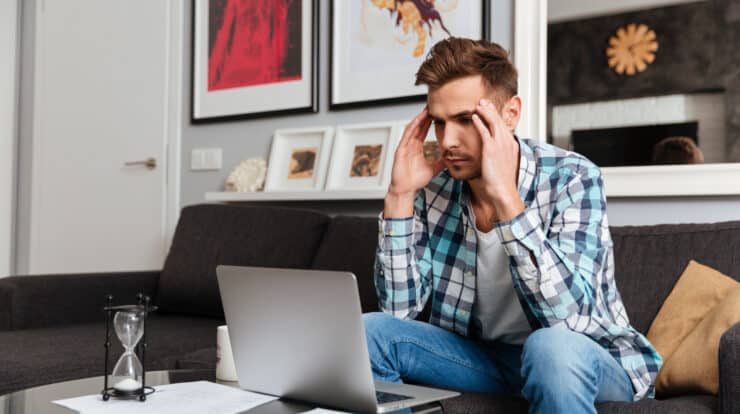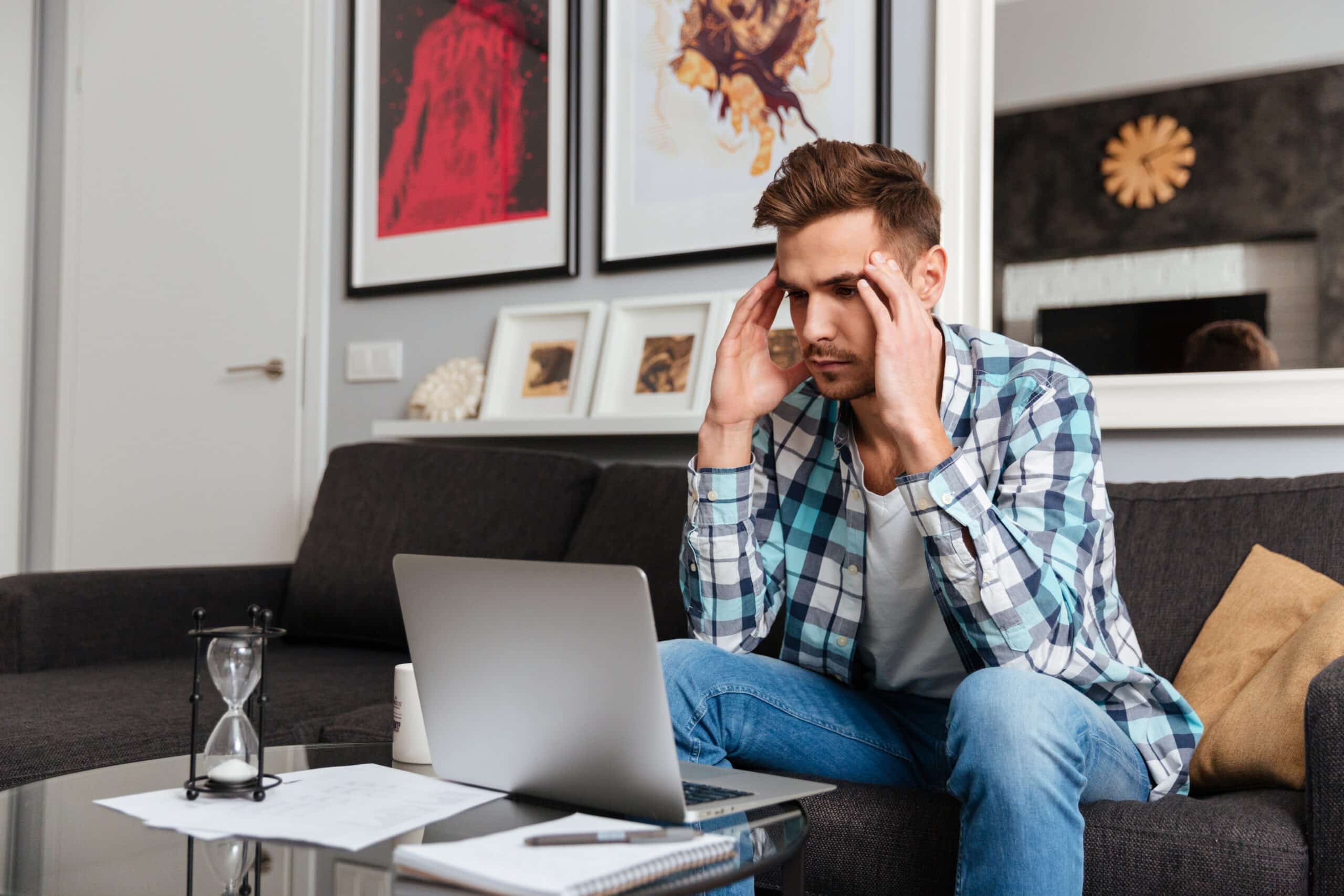
Mental health is crucial for our overall well being. Anxiety can be a particularly debilitating condition that affects millions of people worldwide every day. In this blog post we will explore the topic of anxiety and provide coping strategies to help those living with it on an everyday basis.
Anxiety – What It Is and How to Identify
Anxiety is a feeling of apprehension or unease about something that may happen in the future. It often manifests physically through symptoms such as sweaty palms, racing heartbeat trembling voice and shortness of breath due to hormones like adrenaline and cortisol being released into our bodies preparing us for fight or flight mode. However while some level of anxiety can be considered normal excessive amounts could interfere with daily activities leading towards other mental health issues if left unchecked.

Anxiety Coping Strategies for Daily Living
Coping with anxiety can be challenging but there are several strategies that have proven effective. Here are some options worth considering:
Mindfulness meditation has been shown to be an effective way of reducing anxiety and improving emotional regulation. This practice involves focusing your attention on the present moment without judgment or criticism. To get started with this technique set aside ten minutes each day for quiet reflection while paying close attention to your breath. With regular practice you may notice improvements in both physical and mental wellbe being over time.
Regular exercise has been shown to have numerous benefits for mental health including reducing anxiety symptoms. This is because it releases endorphins which are natural mood boosters while also improving sleep quality and alleviating muscle tension. Aiming for at least thirty minutes of moderate intensity exercise most days per week could be an effective strategy in managing your anxiety levels.
When dealing with anxiety seeking out social support is crucial. Reaching out to friends and family members can help alleviate feelings of isolation and loneliness which often worsen symptoms associated with this condition. Engaging in enjoyable activities together or simply talking through issues are effective ways to maintain connections while managing stress levels effectively. Seeking assistance from loved ones when needed will also provide valuable emotional support during challenging times. By prioritizing self care practices like these individuals struggling with anxiety may find greater peace within themselves as well as improved relationships outside their own minds.
Negative thinking patterns are a common issue among individuals with anxiety. However, challenging these thoughts and replacing them with more positive ones can help alleviate symptoms over time. Whenever you notice yourself engaging in negative self talk take some time to reframe the thought into something uplifting instead. This practice will ultimately lead towards greater mental wellness and overall happiness.
When faced with anxiety practicing relaxation techniques can be an effective way to manage symptoms. Deep breathing exercises, progressive muscle relaxation and visualization are all examples of methods that have been shown to reduce stress levels in individuals dealing with this condition. By incorporating these practices into your daily routine you may find they provide some relief from the discomfort associated with anxious feelings. Consider trying out one or two of them today!
Knowing When to Seek Professional Help for Anxiety
While coping strategies can be effective in managing anxiety sometimes they may not suffice. If you have tried various methods but still experience significant distress or impairment daily functioning it could indicate that professional help is necessary. A licensed therapist/counselor will work with you to create a personalized treatment plan tailored specifically for your needs and goals using cognitive behavioral therapy (CBT), exposure therapy, medications or any combination of these approaches to manage symptoms effectively. Don’t hesitate seeking expert assistance if needed!
Managing Anxiety With Self-Care
Managing anxiety can be challenging but with the right self care practices it is possible to find relief. Consider seeking professional help and incorporating these additional tips into your routine:
If you’re struggling with anxiety then getting adequate rest should be a top priority. Lack of sleep can exacerbate symptoms so prioritizing good sleep habits is crucial for managing this condition effectively. Aiming for seven to eight hours per night and establishing consistent bedtime routines are key steps towards achieving better quality slumber – which in turn could help alleviate some of your stressors.
Maintaining a balanced diet is crucial for managing anxiety symptoms. Incorporating fruits, vegetables, whole grains and lean protein sources into your meals can help stabilize energy levels while reducing inflammation that may contribute to these feelings of unease. A nutritious approach towards food choices will go a long way in promoting overall wellbeing.
Alcohol and caffeine can be a trigger for anxiety attacks in some individuals. If you are prone to these episodes it may benefit you to limit or avoid intake altogether. Consider this option as part of your overall strategy towards managing symptoms effectively.
Staying hydrated is crucial for managing anxiety symptoms. Dehydration can cause fatigue, headaches and other unpleasant side effects that may exacerbate feelings of unease or worry. To avoid these negative outcomes make sure you drink plenty of water throughout the day to keep yourself well-hydrated at all times. By doing so you’ll be taking an important step towards maintaining good mental health.
Regular physical activity has been shown to have a positive impact on reducing anxiety symptoms. To achieve this benefit aim for at least thirty minutes of moderate intensity exercise most days per week by engaging in an enjoyable form of movement that suits your preferences. By doing so you’ll be taking proactive steps towards managing stress levels and promoting overall well being. Remember consistency is key!
Stress and anxiety can take a toll on our mental health if left unchecked. Taking breaks from work or other responsibilities when needed is crucial for reducing these negative emotions. Schedule time off or use vacation days as opportunities to recharge and unwind – it will benefit both your physical and mental wellbeing in the long run!
Incorporating gratitude into your daily routine can help you cultivate positivity and shift away from negativity. Maintaining a journal wherein you jot down three things that make you feel grateful every day is an effective way to achieve this goal. This practice helps focus on whats good in life rather than dwelling on the negative aspects of it. By doing so regularly over time one may notice significant improvements in their overall outlook towards life situations as well as relationships with others around them. It’s worth giving it a try!
Anxiety is a widesp one issue that can be tackled effectively through coping mechanisms and professional support. By practicing self care daily while seeking help when necessary individuals with anxiety disorders are able to manage their symptoms better leading them towards fulfillment in life. Remember prioritizing mental health should always come first!




